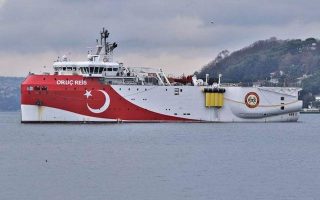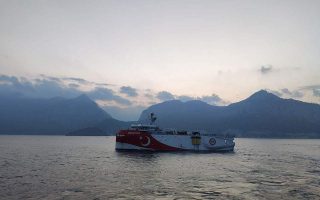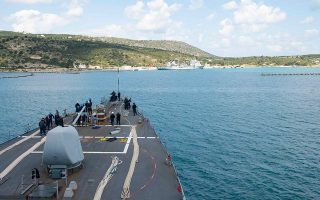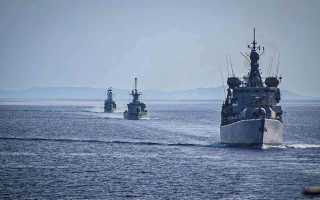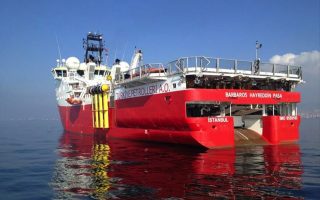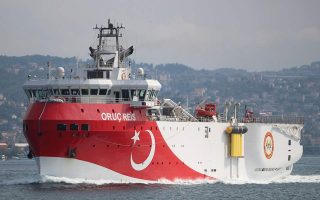Greece’s armed forces placed on high alert
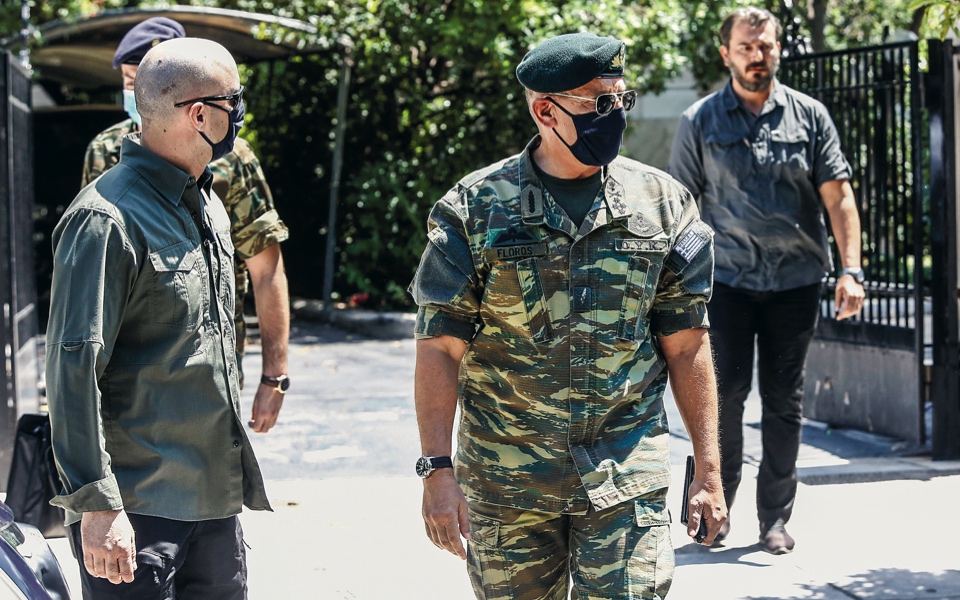
Greece was placed on high alert Monday after Turkey sent its Oruc Reis survey ship into an area within the Greek continental shelf, a move which Athens described as a threat to peace and stability in the region.
According to a navigational telex it issued, Ankara reserved an area south of the Greek island of Kastellorizo to conduct research over the next two weeks. In response, Greece’s armed forces were placed in a state of absolute readiness, with units of the Hellenic Navy and Air Force deployed in the wider sea area where the Turkish research was expected.
When the Oruc Reis accompanied by ships of the Turkish Navy entered the Greek continental shelf, Greek warships sent messages at a frequency of about 15 minutes requesting the vessel’s removal from the area. The messages went unanswered by the vessel which, however, moving at a low speed – similar to that appropriate for a search process – had prepared cables to lower to the seabed in order to proceed with research activities in the area.
However, according to sources, exploratory activities were rendered impossible due to the noise caused by the many naval units sailing in the area. This is because exploration of this sort entails the transmission of data from the seabed and the noise of the ships made this transmission impossible.
In Athens, an emergency meeting of the country’s top decision-making body on foreign affairs and defense matters, KYSEA, was convened. Foreign Minister Nikos Dendias issued a stern statement calling on Turkey to “immediately end its illegal actions that undermine peace and security in the region.”
He added that the Turkish navtex “is a new serious escalation and exposes in the most obvious way the destabilizing and threatening role of Turkey.” “Greece will not accept any blackmail. It will defend its sovereignty and sovereign rights,” he said.
To this end, Greece mobilized to brief international players, with Prime Minister Kyriakos Mitsotakis speaking on the phone with NATO Secretary-General Jens Stoltenberg.
The Greek Embassy in Ankara was reportedly instructed to lodge a demarche with the Turkish Foreign Ministry.
In the same context, Greece also issued its own counter-navtex to cancel the Turkish one.
For its part, Turkey dismissed Greek objections and said it would continue operations there. Turkish President Recep Tayyip Erdogan said no country would succumb to “ridiculous and baseless claims” such as the ones made by the Greeks. Its Foreign Ministry said Turkey’s military presence in the area was not designed to escalate tensions and was only for defensive purposes if deemed necessary.
